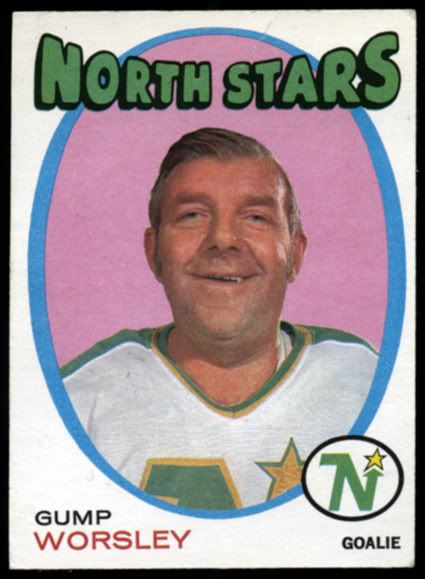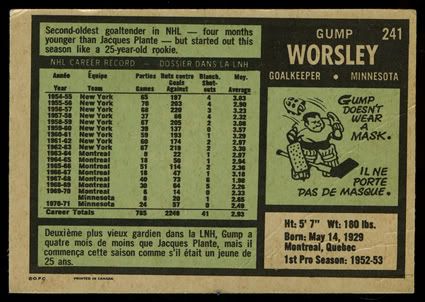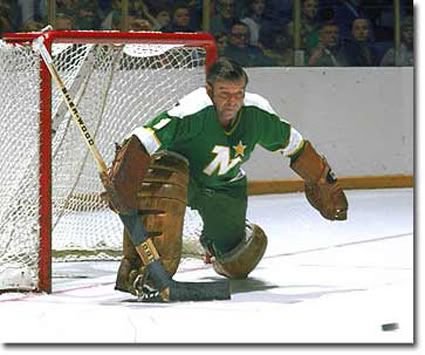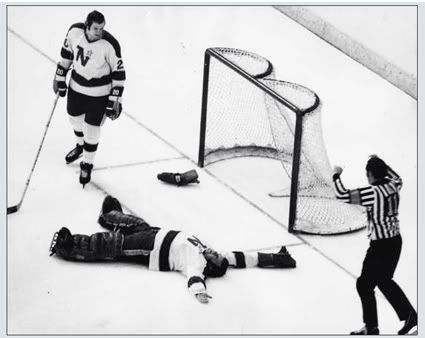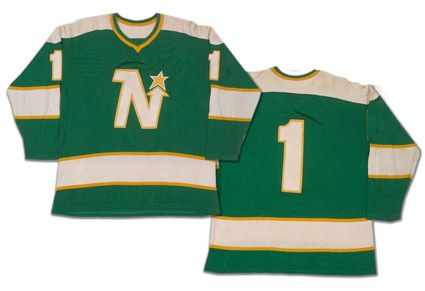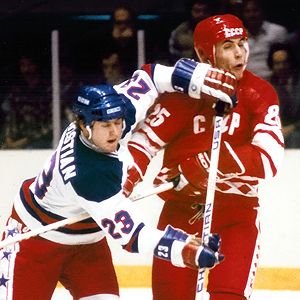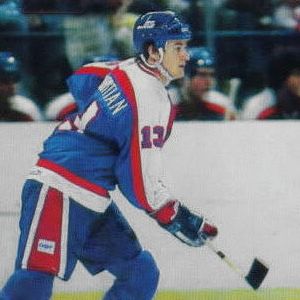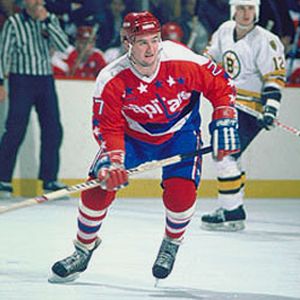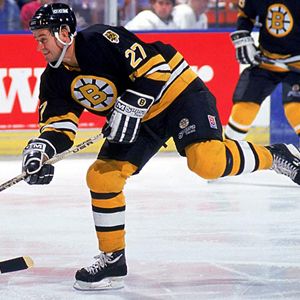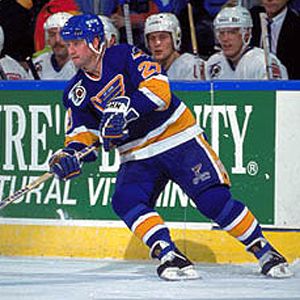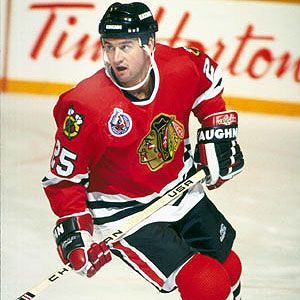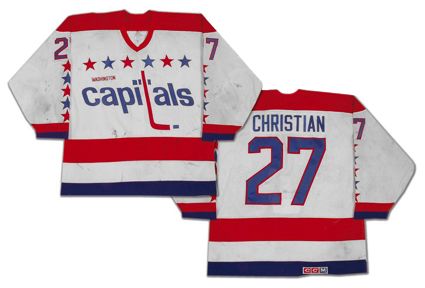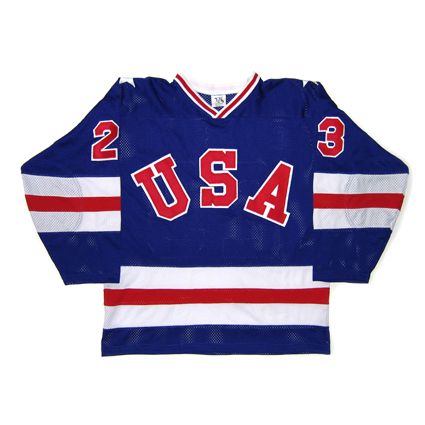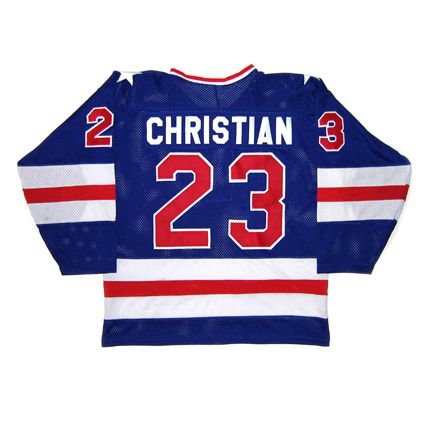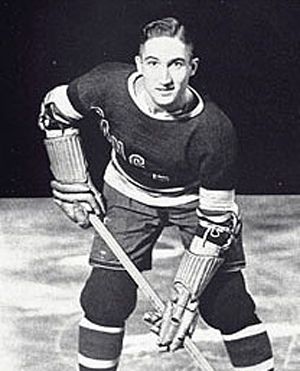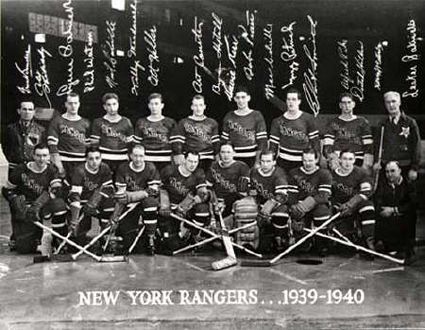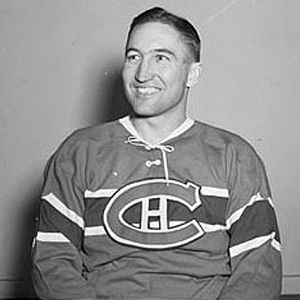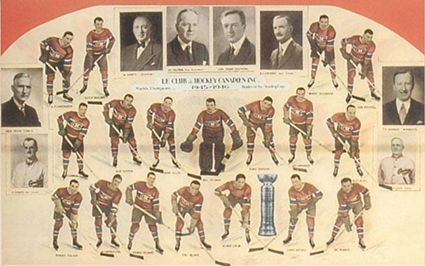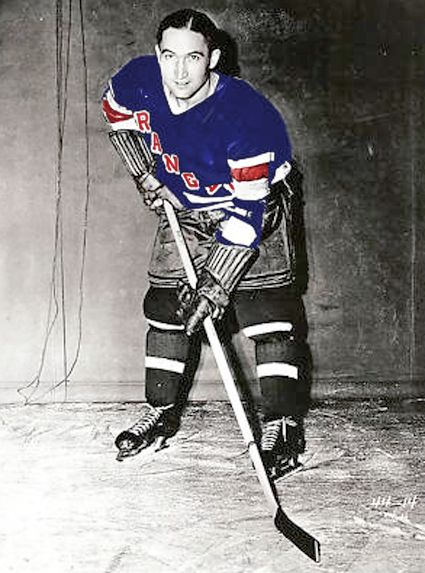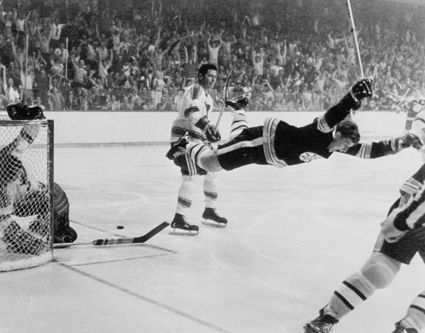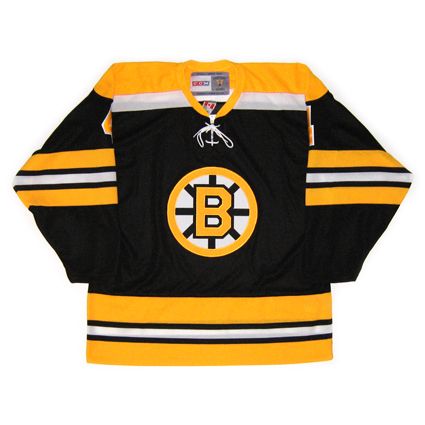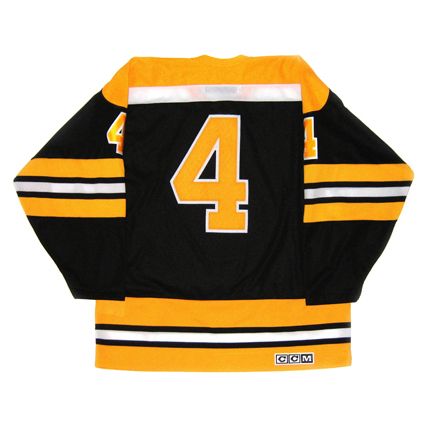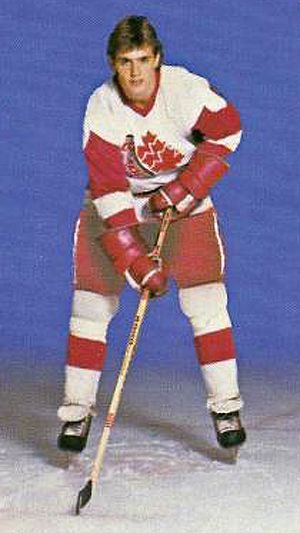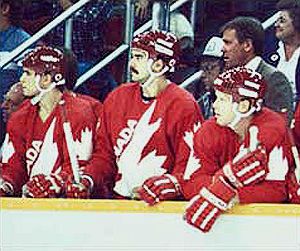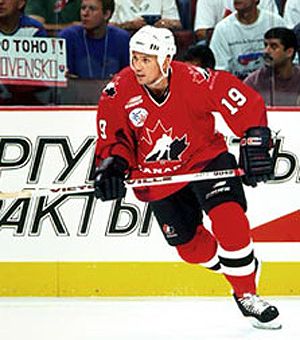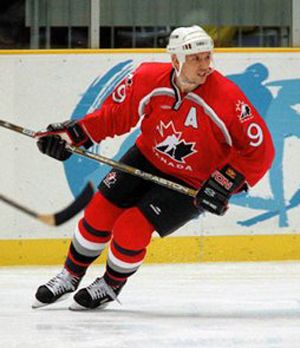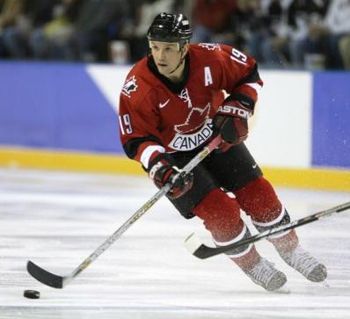Steve Yzerman, born on this date in 1965, began his international hockey career skating for Canada in the 1983 World Junior Championships wearing the unfamiliar number of 14. The tournament, played in what was then known as Leningrad, saw a Canadian lineup which featured future NHLers
Dave Andreychuk, Mario Lemieux, Pat Verbeek and
Mike Vernon. Yzerman finished 9th in team scoring with 2 goals and 3 assists in 7 games as Canada earned a bronze medal with a record of 4-2-1.
Yzerman in the 1983 World Juniors jersey
Following his rookie season in the NHL during which he scored 39 goals and 87 points, Yzerman would get his next opportunity to play for Team Canada in the 1984 Canada Cup, a prestigious honor for a 19-year-old considering the importance of the tournament to Canada and the stellar lineup of names they had to choose from. Yzerman, wearing #8, had an understandably smaller role with the squad, appearing in just four of the eight games and was held without a point. Still, it was a great experience to be on a team with the greatest players in Canada at the time.
Yzerman on the left, next to Michel Goulet and Randy Gregg during the 1984 Canada Cup
With Detroit at the end of the "Dead Wings" period, where they missed the playoffs 15 of the previous 18 seasons, Detroit did qualify for the 1985 Stanley Cup playoffs, but their quick first round exit freed Yzerman up to join Team Canada for the World Championships for the first time.
Now wearing his familiar #19, Yzerman scored 3 goals and 7 points in 10 games, 6th on the team, as Canada with an overall record of 6-3-1 and took home a silver medal.
Detroit began to show long-waited improvement and began to regularly qualify for the NHL playoffs, which delayed Yzerman's next appearance for Canada until the 1989 World Championships in Sweden. Now established as an NHL captain since 1986, was also named as one of three Canadian captains, along with Dale Hawerchuk and Kirk Muller. Yzerman was limited to just eight of Canada's ten games but still came second in scoring with 5 goals and 12 points. After a preliminary round record of 5-2 to advance to the final round, Canada beat Sweden, lost to Russia and then beat Czechoslovakia to earn another silver medal.
A setback in Detroit in 1989-90 meant the Red Wings missed the playoffs, which made Yzerman once again available for World Championship duties. Again named team captain, along with defenseman Paul Coffey, led Canada through the preliminary round undefeated with a record of 6-0-1. The Final Round saw a complete reversal of fortune, as Canada lost to the Czechs, the Soviets and the Swedes to fall flat and miss out on the medals. Yzerman led the team in scoring with 10 goals and 20 points in 10 games, an average of two points per game.
It would prove to be Yzerman's final World Championship, mainly due to the rise of the Red Wings, who qualified for the Stanley Cup playoffs in 1991, beginning a streak which would last for the remainder of his NHL career through 2006.
When the World Cup of Hockey debuted in 1996 prior to the start of the NHL regular season, Yzerman was free to participate, and scored a pair of goals and an assist in six of Canada's eight games.
Yzerman during the 1996 World Cup of Hockey
With the rules changed and the NHL now agreeing to suspend it's regular season to allow the best NHL players to participate in the Olympics, Yzerman's next Team Canada appearance came in Nagano, Japan in 1998. Canada went 3-0 in the Preliminary Round and defeated Kazakhstan before losing to both eventual champions the Czech Republic in a shootout and then Finland to finish just short of a medal. Yzerman finished with 2 points in 6 games.
Yzerman's first Olympic experience came in the 1998 games in Japan
The final international opportunity of Yzerman's career came with the 2002 Olympics in Salt Lake City. It all came right for Canada as they won their first Olympic gold medal in 50 years by defeating the United States 5-2 in the final. During the tournament Yzerman tied for second in Canadian scoring with 2 goals and 6 points, one back of Joe Sakic, which tied him for 5th in tournament scoring.
Yzerman in the gorgeous throwback jersey worn by Canada in their opening game against Sweden
When he announced in 2005 that he would not be going to participate in the 2006 games in Italy, Wayne Gretzky announced that no Canadian player would be allowed to wear Yzerman's #19, a roster which included regular wearers of #19 in the NHL Shane Doan (who wore #9 in Italy), Brad Richards (#39), Joe Sakic (#91), Jason Spezza (#10) and Joe Thornton (#97).
Yzerman himself, in his role as Executive Director of Team Canada for the 2010 Olympics, unretired #19 which was worn by Thornton.
With 57 games played, Yzerman's international carer concluded with 25 goals and 55 points, a bronze medal, two silvers and a pair of gold medals.
Today's featured jersey is a 1989 Team Canada Steve Yzerman jersey as worn in the 1989 World Championships when Canada won the silver medal. Yzerman also wore the same jersey in the 1990 World Championships when he led Canada with 20 points in 10 games.
Of note, Canada was also scheduled to wear this same style jersey made by Tackla in the 1988 Olympic games in Calgary but defied the contract the Olympic organizers had with Tackla to supply all the jerseys, opting to wear the same design produced by the Canadian manufacturer CCM instead, which earned them a $100,000 fine for their actions.
Today's video section is highlights of Yzerman and Team Canada winning the gold medal at the 2002 Olympics.

